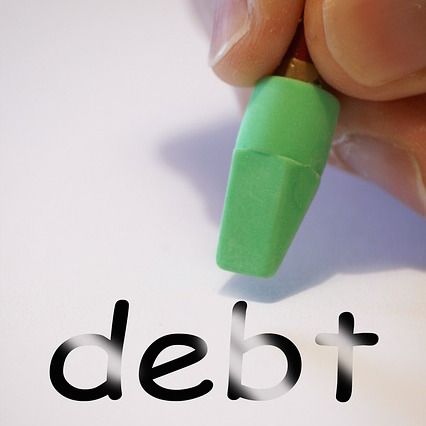Tips for Staying Debt-free
Everyone struggles with debt, whether it be from student loans, business purchases or everyday expenditures. According to financial website NerdWallet, the average U.S. household has $137,063 in debt (including all types of debt). Here are five tips to help you become debt-free — and stay that way!

Your net worth — which indicates your financial health — is the difference between your assets and your liabilities. The best way to grow your net worth is to spend less money than you earn in your paycheck.
While this may seem obvious, it’s not something many people think about when it comes to their finances. But making sure to live within your means is the number one way to keep your bank accounts out of the red.
Tip #2: Track your spending for an entire day, week and month.
Every financial adviser swears by expense tracking — both business and personal — for understandable reasons. How will you know how much you’re spending and on what if you don’t write it down?
Tracking your expenses doesn’t need to take too much time out of your busy schedule. Excel spreadsheets can make it simple. And after a month of recording your expenses, you will have a better idea of how you spend your income and where you may need to make some changes.
Tip #3: Automate your debt repayments.
Set it and forget it — a motto you should try to live by. Most loan issuers and credit card companies have an option for you to set up automatic online payments directly from your bank account.
An easy way to get started with automated payments is to create a separate savings account just for automated repayments. This will allow you to be sure your account balance is higher than what your automated payments will be for that month.
Tip #4: Pay off debt with the highest interest rate first.
You will ultimately need a preferred method for paying off your debt to get yourself out of the hole quicker and easier. One of those methods is to pay off debt and loans that come with the highest interest rates. After you take care of these hefty payments, you can then focus your payoffs on your debts with lower interest rates.
Tip #5: Don’t carry a credit card balance.
While becoming debt-free should not be everyone’s goal all the time, you should definitely try to avoid credit card debt. If you have a credit card, but you can’t make sure your balance is paid at the end of every month, you may need to use your card only for emergencies.
Don’t close your already opened credit cards, though, because doing so can lower your credit score greatly. Instead, make it a point to steer clear of opening any new accounts if you find yourself with an outstanding balance.